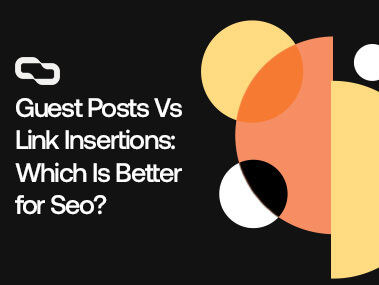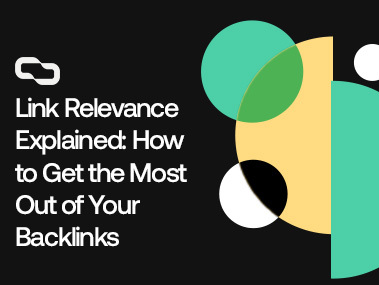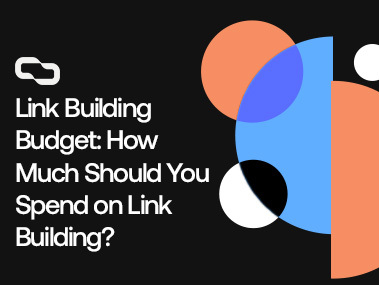Link Earning 101: How to Get Backlinks Passively
Struggling to climb the search engine ladder?
You're not alone.
Many businesses face the uphill battle of gaining visibility.
Enter link earning: a strategy where creating compelling, share-worthy content earns you the backlinks that signal trust and authority to search engines.
In this guide, I'll provide a step-by-step walkthrough of the link earning process, teaching you how to create content that engages your audience and attracts organic backlinks.
You'll learn strategies to enhance your SEO by crafting content that naturally earns the trust and authority signals search engines value.
What Is Link Earning?
Link earning is the process of gaining backlinks naturally when people think your content is too good not to share.
The secret sauce?
It's all about crafting content that's a cut above.
What counts as "great" might change based on who you're trying to impress or what field you're in.
But typically, if your work is original, packed with solid info, written clearly, and looks good, you're more likely to get those backlinks.
Here's a down-to-earth example: say you run a business helping small and medium-sized companies with their finances.
You might do a deep dive into what these businesses need money-wise and then share your discoveries in a report.
If this report hits the mark and offers real value, it could attract backlinks from a bunch of places like news sites, finance-focused blogs, industry associations, social media enthusiasts, and online discussion groups.
Whether you're putting together detailed guides, creating engaging videos, sharing expert opinions, offering tips to save money, or designing infographics , if it's top-notch, it can draw in those backlinks.
Link Building vs. Link Earning: What’s the Difference?
The main difference is how you get those backlinks and whether they're genuine.
With link earning, your content is so good that other sites want to link to it naturally.
Google's John Mueller says the best kind of link is when someone finds your site great and decides to share it.
On the other hand, link building is about actively seeking out those links, like through guest posting or link exchanges.
It's about trying to boost your visibility on search engines.
But, this approach has been criticized for not always focusing on link quality.
As online standards have evolved, so has the preferred method of getting links.
Now, Google and other search engines are all about link earning – encouraging the creation of content that's genuinely valuable and naturally attracts links.
This approach aims to improve the internet's content quality.
Google's updates, like the Florida Dance, Vince, Penguin, and Panda algorithms, support this shift.
They promote earning links through quality content rather than manipulating the system to get links.
What Are the Benefits of Earning Links?
1. Build Brand Awareness
When a site, big or small, links to you, it's introducing you to its audience.
Maybe it's a niche blog with a dedicated following or a major site like the New York Times—either way, you're getting in front of people who might not have found you otherwise.
And if they like what they see, they might just stick around, come back for more, or even decide to buy what you're selling.
It's all about getting your name out there and making sure it sticks.
2. Increase Website Traffic
Links from other sites create paths for new audiences to discover you.
This increased exposure means more people are likely to click through to see what you offer.
As a result, you'll see an uptick in website traffic, which is not just about numbers.
It's about bringing in potential customers or followers who may engage with your content, explore your products or services, and possibly convert into sales or loyal readers.
3. Get in the Good Graces of Google
Google and other search engines really value when reputable and legitimate sites link to your website.
These earned links boost your site's authority, value, and the trust people place in your brand.
So, when these trustworthy sites link to you, search engines take it as a big positive.
They see your site as more relevant and reliable, which means they're likely to boost your position in the search results pages (SERPs).
This boost makes your site more visible to people searching for what you offer, increasing your chances of getting clicked on and visited.
4. Generate Links over Time
The great thing about creating truly valuable content is that it doesn't just stop at attracting initial links—it continues to draw in more over time, almost effortlessly.
While crafting such content requires significant effort upfront, if it's useful and engaging, it can attract new links for years to come.
This ongoing accumulation of links boosts your website's authority and visibility, ensuring that the work you put in today keeps paying off well into the future.
5. Generate Tier-Two Links
Beyond just earning direct backlinks, there's another layer to the link-earning benefit: tier-two links.
These are links that don't point directly to your site but to the pages that link to you.
Think of it as a ripple effect—when a site links to a page that's linking to you, it indirectly boosts your site's visibility and authority.
This chain reaction helps in spreading your content's reach further than the first layer of direct links.
6. Good for EEAT
Another benefit of earning links is how they supercharge your website's EEAT—Google's way of sizing up your content's Experience, Expertise, Authoritativeness, and Trustworthiness.
Here's the lowdown:
Experience: When your content showcases real-world know-how, it strikes a chord with readers and Google alike.
Expertise: This is where your deep dive into your field shines through. If you're the expert everyone turns to, your content naturally reflects that, and Google takes notice.
Authority: It's about being the go-to source in your niche. When your site is the hub for insights and trusted information, it's like being the industry influencer that everyone listens to.
Trust: Accuracy and reliable sources are key here. It's all about building a foundation where readers and Google know your content is dependable.
When reputable sites link to your content, it's a nod to Google that you're a credible player in your field.
Look at ThinCats—they shared their expertise with a survey, and getting recognized by Insider boosted their EEAT in all the right ways.
It's a ripple effect: solid content earns links, which in turn bolsters your site's standing in Google's eyes, making it more likely to rank well.
So, earning links isn't just about boosting numbers—it's about building a reputation that Google and readers respect.
7. Optimize Specific Terms
When you focus on earning links, you can also tailor your content to rank for specific, relevant terms.
Take the ThinCats example we discussed.
Suppose they wanted to be known for "SME finance research."
By sprinkling related keywords throughout their content, they make it easier for people searching for that topic to find their report.
What happens next?
As more folks discover and visit the report, the chances of them finding it valuable and linking to it go up.
This creates a virtuous cycle: the content is optimized to attract visitors through search, those visitors find the content useful and are more likely to link to it, which in turn boosts the content's visibility and authority even further.
So, by strategically using relevant terms, you're not just improving your content's searchability—you're also setting the stage for more organic links.
What Are the Downsides of Earning Links?
1. Significant Resource Investment
Let's face it, creating top-notch content that grabs attention and earns links is no small feat.
If it were easy, everyone would be doing it, right?
This means rolling up your sleeves and getting the right people on board—think researchers, writers, designers, and even developers, not to mention an expert to make sure your research hits the mark.
Now, if you're not keen on DIY, you could always hire pros to do the heavy lifting for you.
But, just a heads up, that can get pretty pricey.
Whether it's a deep-dive research report or an engaging infographic, pulling together all that talent costs a pretty penny.
So, whether you're rallying your in-house team or outsourcing to the experts, gearing up to create content that's link-worthy is going to be a solid investment of your time and resources.
2. Uncertain Outcomes
If you dive into link earning, you'll quickly find it's a bit like rolling the dice.
You could create something fantastic, and it might catch on fast, or it might take a while to get traction.
This unpredictability means that sites with already good traffic tend to do better with link earning—they've got the eyes already, which helps the content get shared.
But if your site is still growing its audience, be prepared: it could take some time before your content starts pulling in those links.
So, while it's exciting, remember, with link earning, there's no guaranteed timeline for success.
3. Limited Control over Backlink Sources
With link earning, you can't really pick where your backlinks come from, unlike with deliberate link building.
This means you might get links from sites that aren't quite up to par or don't align with your content.
While most of these won't hurt your site, a link from a shady source could trouble your Google standing and impact your traffic.
What Are the Ways to Earn Links?
1. Develop Your Content Strategy
First up, you need a rock-solid strategy that aligns with what your audience finds valuable and link-worthy.
It's not just about cranking out any content—it's about delivering something that truly stands out, whether that's through its insightfulness, utility, or uniqueness.
And think about the format that will best capture your audience's attention, like engaging blog posts, informative infographics, or compelling videos.
Remember, consistency is your friend here.
When you regularly dish out great content, your audience will start to anticipate and rely on your posts.
For inspiration, just look at Ericsson—they've become a trusted source with their regular insightful reports.
When it's time to create, aim for content that's well-researched, visually appealing, clear, and authoritative.
Depending on what you're producing, you might need a mix of talent—from writers and designers to researchers and developers.
If these skills aren't in your team's toolkit, consider bringing in specialists or agencies to help craft standout content, similar to how CEM Writing Services produces top-notch B2B research reports.
The end goal?
To craft content that not only engages your audience but also earns those crucial backlinks.
2. Optimize Your SEO
To get those passive links rolling in, your content needs to be easy to find.
And that's where SEO comes into play.
Here's a quick rundown on making your content more search-friendly:
Pick the Right Keywords: Use terms your audience is searching for. This helps search engines match your content to what people are looking for.
Craft Compelling Meta Titles and Descriptions: They're the first thing people see in search results, so make them count with relevant keywords.
Use Alt Text for Images: Describe your images with alt text, making your content more accessible and understandable to search engines.
Link to Reputable Sites: Including links to authoritative sources can boost your content's credibility and search ranking.
Add Videos: They're not just engaging; they can also improve your SEO, signaling to search engines that your content is rich and valuable.
You can consider using tools like Surfer SEO to analyze top-ranking pages and get customized advice on word count and keywords.
3. Promote Your Content
Don't just sit back and wait for links to come to you; get out there and promote your content!
Even though your content is designed to earn links naturally, a little push can significantly boost its visibility and linkability.
Here are some ways to get the word out:
Press Releases: Craft compelling press releases and send them to journalists. This can get your content in front of a large audience and lead to high-authority news sites linking to your work.
Social Media: Use your social channels to share your content, engage with your audience, and attract more visitors to your site.
Podcasts and Vlogs: Share your expertise by appearing on podcasts or vlogs. This can expose your content to a broader audience and position you as an authority in your field.
Consider this a form of PR link building, a strategy that not only promotes your content but can also secure links from reputable sites.
Take Kyle Roof, an SEO expert who shared his research on Google's EEAT rules across various industry podcasts and YouTube channels.
His appearances:
Brought more visitors to his website.
Elevated his industry profile.
Demonstrated his leadership in SEO innovation.
Just like Kyle, by actively promoting your content, you can amplify its reach, attract more visitors, and position yourself as a key player in your industry.
4. Build Links Effectively
If your stellar content isn't catching as much attention as you'd hoped, it's time to dial up your strategy with some savvy link building.
Think of it as giving your content a little nudge so it climbs up the search engine ladder, making it more visible and clickable.
Let's get real—most savvy companies pair their top-notch content with a bit of link building magic.
Take Dynatrace, for example.
They crafted an insightful report for financial CIOs on the complexities of cloud computing.
But they didn't stop there.
To spread the word, their regional director penned a guest post on TechUK.org, diving into the report's juicy bits.
Why does this rock?
Right Audience, Right Place: TechUK is where UK tech aficionados hang out. It's spot-on for their target market.
Timely and Relevant: The post tackles AI and cloud computing integration, a hot topic for their audience.
Trust Factor: TechUK is a big deal in the tech world, so a nod from them means a lot.
Pure Value: The guest post is packed with insights, not sales pitches.
By giving your content a link-building boost, like Dynatrace did, you're not just waiting for links to come to you—you're actively placing your content in the spotlight where it belongs.
FAQs
What Is Link Earning in SEO?
Link earning in SEO is acquiring backlinks naturally because others find your content valuable and choose to link to it without being prompted.
What Is Link Building Earning?
Link building earning is a blend of terms; typically, link building is actively seeking links, whereas link earning is about creating content that naturally attracts links.
What Does Earn Links Mean?
Earning links means creating content of such quality that other websites link to it naturally, recognizing its value to their readers.
How Do I Create an Earning Link?
To create an earning link, produce high-quality, valuable content that addresses your audience's needs or interests, prompting others to link to it as a resource.
Conclusion
The secret sauce to mastering link earning is crafting a backlink profile that looks and feels natural.
This diverse profile should include a blend of guest posts, niche edits, and a variety of other backlinks like web 2.0, images, and PR links.
The perfect mix varies by niche and depends on your existing backlink landscape.
Not sure where to start or what mix of links will propel you to Google's top spot?
Our team of link-building experts is here to help.
We'll dive deep into your backlink profile, identify areas for improvement, spotlight quick wins, and tailor a strategy that maximizes your ROI.
Find out your exact cost of ranking for your dream keyword
Let’s get you ranking now
If you want the team at Get Me Links to help you get more traffic



